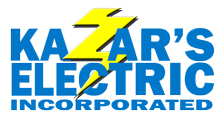When it comes to electrical knowledge, electricians know it all. Their years of experience and studying provide them with the ability to provide you with the services needed to keep your properties fully functioning. According to IBISWorld, there are over one million people employed in the Electricians industry in the U.S. Hiring an electrician can solve all your problems and prevent future ones, but not knowing what is being discussed or fixed can cause some confusion. Luckily, some of the basic electrical terms are easier to explain. Here are a few of those terms, explained!
Voltage
Voltage is a term that is used to describe the amount of electricity being funneled through an electrical wire. Specifically, voltage measures the amount of power similar to how water pressure measures how fast and how much water is going through a hose. Voltage, amperage, and wattage are all used to measure the amount of electricity being used.
Transformer
Transformers are the large cylindrical boxes you see on your street attached to the powerlines and utility poles. Electrical power plants will have multiple of these outside to fully generate the power needed for these plants to function. These transformers are used to increase or decrease the amount of electricity provided to the buildings it connects to.
Service Panel
Service panels are known for being the electrical control center for most small buildings. If you have a large residential, commercial, or industrial property, you may have multiple service panels that each control one of the electrical circuits on the property. The service panel is the connection point between the transformer and your residential or commercial property. Each service panel will have a neutral terminal for electricity to have a return path to the transformer.
Circuit Breaker
Inside your residential or commercial service panel lie circuit breakers. These switches represent the electrical circuits in your home or commercial property. Their purpose lies in avoiding electrical overload. You may have heard the term “trip the breaker.” This comes from circuit breakers. If a circuit in your home experiences an electrical overload, the circuit breaker will “trip,” switching off and opening the electrical circuit. If you have complex work to be done that involves your circuit breaker, it’s a good idea to hire a qualified residential electrician to do the job for you.
Having a basic understanding of common electrical terms will help you understand what your electrician is fixing in your home. By keeping an eye out for electrical issues in your home, and calling an electrician you can trust when needed. Contact Kazar’s Electric if you are in need of an electrician today.

